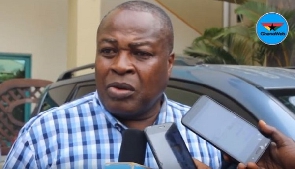Standard and Poors? outlook adjudges the country?s sovereign credit outlook to be stable. This is based on an expectation of continued prudent economic policies that foster stability and growth.
The report indicates that the rating could improve if progress is made on structural reform particularly privatization and broadening of the narrow base of the economy.
According to standard and poor, a reduction in the current account deficit and evidence that the financial of deficits is not undermining debt sustainability would also augur well for the ratings.
According to a business week report, ?Conversely, any indication that the greater fiscal flexibility afforded by debt forgiveness is being misdirected or that Ghana is embarking on policies that endanger relations with donors would undermine ratings prospects?.
The report says if government was to backtrack on reforms, particularly on the deregulation of fuel pricing, this could place downward pressure on the ratings.
Already, government together with the National Petroleum Authority (NPA) last week began implementing the final phase of the deregulation process where oil-marketing companies are now setting prices for petroleum products.
According to Standard and Poors, the entrenchment of macro-economic and political stability and the easing of external and fiscal pressures following debt relief initiative support the ratings on Ghana.
Fiscal performance was robust with the timely deregulation of oil prices in February 2005, helping to limit the ongoing central government deficit to 2.6 percent of GDP.
Following the debt forgiveness accorded after Ghana reached the HIPC completion point in mid-2004, the sovereign external and public sector debt indicators are due to strengthen further this year, after the decision of the IMF, World Bank and African Development Bank to cancel US$3.8 billion in debts owed by the country.
This the report says will reduce central government external debt to a very low 13 per cent of GDP in 2006 from 59% in 2005.
The ratings on Ghana remain constrained by the continued dominance of cocoa an gold, with regards to export earnings resulting in susceptibility to often volatile commodity prices and agricultural output volumes.
High oil prices and reduced cocoa output in 2005, resulted in an increase of the current account deficit to 7.5 per cent of GDP. Consequently, Ghana?s gross external financing requirement remains high at nearly 115% of gross external reserves.
Click to view details



Business News of Monday, 8 May 2006
Source: Business Week
















